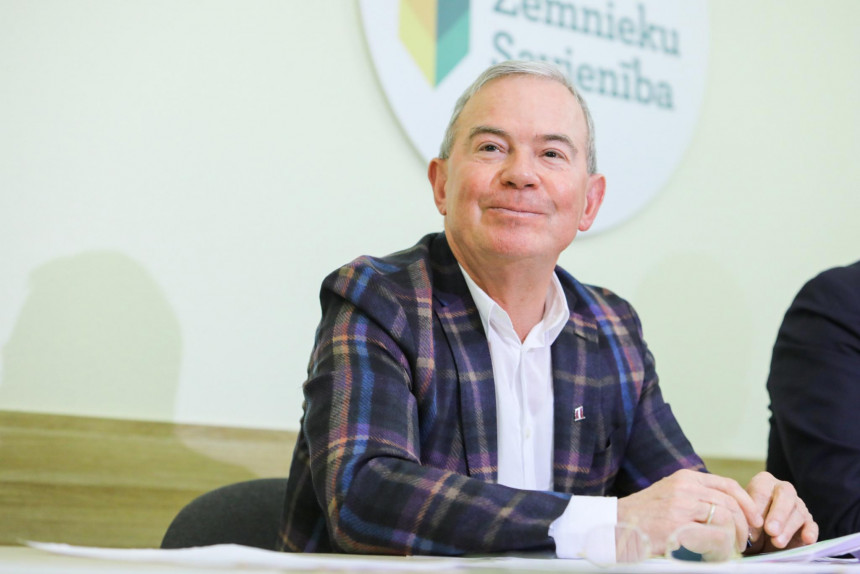Aivars Lembergs doesn't want the USSR times to return

Amendments to the Law on Ports will return Latvia to the times of the USSR when ports were managed by state officials who were only interested in the money coming in from port operations and were indifferent to environmental pollution problems, believes Aivars Lembergs, the long-serving chairman of the Freeport of Ventspils.
Since miracles do not happen and 150,000 signatures will not be collected by April 8, the transformation of the ports of Riga and Ventspils into state-owned companies is inevitable.
Asked what the consequences of the new version of the law coming into force would be, Lembergs said: "When I became Mayor of Ventspils thirty-four years ago - at that time Chairman of the Ventspils City Executive Committee - the administration of the Port of Ventspils was carried out by the state-owned company Ventspils tirdzniecības osta. All decisions were taken by the state-owned company, which was subordinate to Latvijas kuģniecība, which in turn was subordinate to the Ministry of Maritime Affairs of the USSR. The option now enshrined in the law is that the port's supervisory functions will henceforth be carried out by a state-owned company - even though it is called a joint-stock company, it is a state-owned company - and is therefore exactly the same management model as it was during the Soviet period. In other words, after 33 years, this Latvian government is bringing back the Soviet model of port management."
Asked why he did not like this model, Lembergs replied: "Because, both in the Soviet era and now, the development, or rather stagnation, of ports will be determined by a state-owned enterprise that is not run by local people. All the key decisions will be taken by the people of Riga after the introduction of this model, but they won't care at all about the impact of the port on the development of the city. This Soviet model of governance had led to a crisis in the late 1980s - a conflict between the port's activities and the living environment of the inhabitants of Ventspils. The people of Ventspils got odor, dust and health problems from the port, while Moscow collected all the money from the port. The model that has now been brought to us violently by the New Conservative Party (Jaunā konservatīvā partija), the government of Krišjānis Kariņš and the current coalition is that of the Latvian SSR port authority. I am against the return of the Latvian SSR to sovereign Latvia. I am against the return of the USSR to Latvia, including in the administration of ports. This model already proved itself to be unviable during the Soviet period. There is no reason to believe that it will prove viable in an independent Latvia."
Asked would it have been possible to collect signatures for a referendum on ports if it were not for the war in Ukraine, Lembergs said: "No, the referendum law is set up in such a way that no initiative would be able to collect the required number of signatures for a referendum. The law is written in such a way that the people cannot initiate a referendum."
Asked whether the authors of the amendments to the law would not try to sell the shares of the state capital company to their friends for pennies, Lembergs replied, "That was the plan of Bordāns, Linkaits and Jurašs - to privatize the ports and then sell the shares. They deliberately reduced the cargo turnover in the Port of Ventspils - twice in two years. As a result, the value of the port's assets fell significantly. The creditworthiness of the ports was completely lost. All that was left was to drive the ports into insolvency and then give them away to party sponsors for nothing. It was supposed to be a pure corruption project. But the coalition turned out the way it did, and they could not get away with such a blatantly corrupt deal. The process did not go that quickly. They will have to continue this process in the next coalition in the next Saeima. Then the New Conservative Party will also be able to continue to secure for its sponsors the privatization of Latvia's strategic infrastructure. Then we will see how it's going. For the time being, nothing of the sort can happen before the Saeima elections."
*****
Be the first to read interesting news from Latvia and the world by joining our Telegram and Signal channels.
